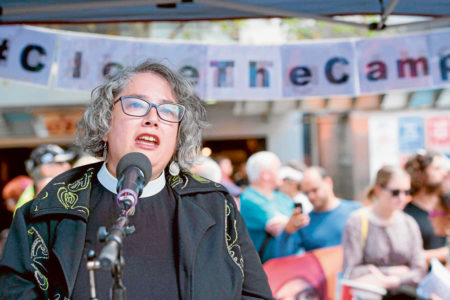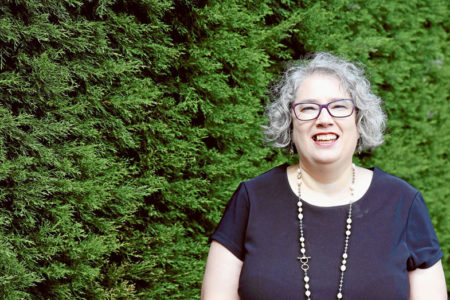When I thought about writing this column to tie in with Mental Health Week (7-13 October) I had planned to write a general column about mental health and the church.
But the general column didn’t come because this is not just a broad issue for me – it’s personal and it’s personal in a particular way.
My beloved partner Michael died by suicide almost five years ago, the result of a major depressive episode.
Even though I’ve been fairly public about how Michael died there is still a nervousness in saying this out loud because of the stigma attached to mental illness and the particular stigmatisation of death by suicide.
As someone who lives with the grief of having a loved one die by suicide here are some things I want people to know about how it is for me. I offer this as my truth, aware others who have been on this journey will not see it exactly the same. I offer my truth in the hope it builds understanding and compassion.
Michael was loved
I’ve noticed when a public person dies by suicide what follows are a flood of social media and blog posts from people who had never met the person, saying things like: “If only I’d met them and told them how much I loved/admired them they might not have died”.
This is said in a well-meaning way, but behind it, is an assumption that everyone who dies by suicide is unloved.
While this may be true for some it is not true for most. People who die by suicide are loved partners, parents, children, siblings, aunts, uncles and friends. And they are loving partners, parents, children, siblings, aunts, uncle and friends.
Among the many cruelties of mental illness, particularly depression, is the way it robs the person suffering of the capacity to receive love, to feel love, to value themselves and their capacities. This incapacity doesn’t mean they aren’t loved, it doesn’t mean they aren’t part of communities of care. Please don’t assume I didn’t fiercely love Michael, or that he didn’t love me. The same goes for my daughters, his family and his friends.
Michael’s life is not defined by his death
There is so much more to Michael than how he died. He was a partner, a father, a friend. He was a records manager and Anglican priest. He loved to go running and make art. He enjoyed English comedies and cricket. None of us should be defined by the worst decision we make or how we die and this is true for people who die by suicide.
What you think I’m feeling is probably not what I’m feeling
Before you’ve been close to death by suicide you make assumptions about how those in that situation are feeling. You are probably wrong. I have experienced a range of emotions – aching loss, frustration, sadness, anger, despair, support, love and kindness. But each time someone has tried to tell me how I’m feeling they’ve been wrong.
What they are telling me about is their emotions, not mine. It’s fine that different people have different responses to death by suicide. I would urge you though not to impose your emotional response on to those closest to death. Listen to them, honour what they are feeling, sit with them in the silence when there are no words for the enormity. Allow them the range of feelings they have.
Grief after suicide is complex and long lasting
All significant grief is painful and slow. The grief after the death of someone you love by suicide is particularly long and complex. There is all the “normal” grief to work through plus the trauma that follows a suicide. You have to process a whole range of questions, emotions and thoughts. Things like ‘could I have prevented the death?’, ‘was I to blame?’, ‘what more could I have done?’
It took me over three years not to feel my grief in a raw, cry-most-days way. Five years on, I feel like I’m only just emerging from the tunnel of grief such that it doesn’t consume me most days.
I don’t believe in “closure”
Michael will always be part of my life. I won’t ever have closure. One of the challenges after the death of anyone you love is how do you renegotiate your relationship with them so that you don’t sever the tie while also accepting that they have died.
This renegotiation happens around how you will mark important days like birthdays, anniversaries and holiday seasons, such as Christmas and Easter. It includes how the dead person will be present in your home, how you will include them in conversation and how their memory and legacy will continue to be part of ongoing life.
If you or someone you know needs help, call Lifeline on 13 11 14.




